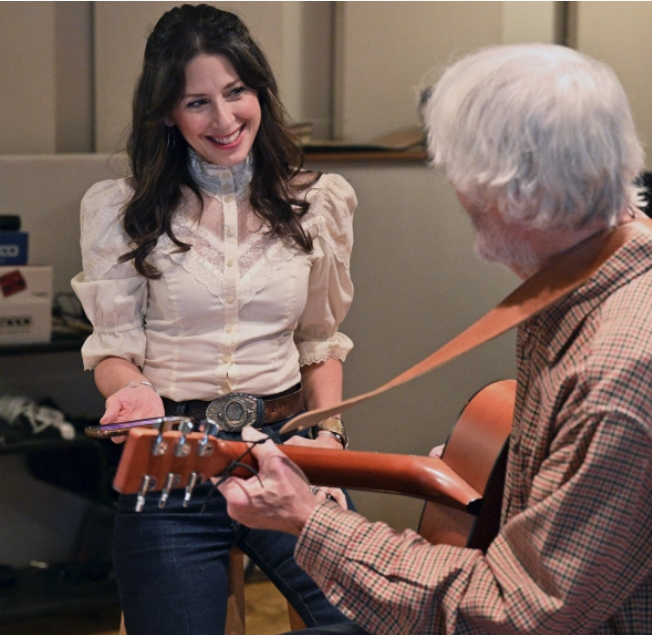Believe Music Heals is featured in the Marin IJ:
Marin project parlays music lessons to unlock creativity from trauma, terminal illness
Published January 3, 2023 at 5:37pm
When Michael Goldman’s wife died four years ago, he turned to one of his old passions to deal with the trauma -– playing guitar.
Goldman, 79 of Fairfax, had played for about 50 years, but entered into the tutelage of Marin songwriter Essence Goldman — no relation — to write his own music and find solace through creativity.
“This outlet is real now and even after a mere few songs, I feel empowered,” he said. “It’s something I can do. It helps clarify my mind.”
Essence Goldman’s newest project is a not-for-profit organization, Believe Music Heals, which seeks to make music-healing programs available to people with chronic and terminal illness, or hardship and distress.
“I have witnessed life-altering transformations in students when, during times of hardship, they turned their focus to creativity, self expression, voice and songwriting,” said the 50-year-old Fairfax resident.
Believe Music Heals is a program of MarinLink, which functions as a fiscal sponsor for community-based projects.
Mary O’Mara, co-founder and director of MarinLink, said the project allows people to capture the music and voices of students who could act as inspiration to others.
“Believe Music Heals is a beautiful testament to the power of music and the gifts left for us from those who leave us too soon,” O’Mara said.
Believe Music Heals will take on its first project on Jan. 17 with a songwriting workshop for about 100 inmates at San Quentin State Prison.
“Many of the projects that I’ve been working on privately will continue into the new year and will reflect and represent the work of Believe Music Heals,” Essence Goldman said.
An accomplished singer-songwriter in her own right, she has taught music in the Bay Area since 2004. It was less than a decade ago when Essence Goldman experienced an awakening to fuse music and public service.

“A series of students came into my life terminally ill and asked me to help them with music during their hardships,” she said.
One of the patients was Bernie Dalton, who lost his voice two months into singing lessons due to ALS, a nervous system disease that impacts physical functioning. Dalton asked for help to put music and melody to his words and the project grew to encompass a new band called Bernie and Believers, an album and a Tiny Desk concert for National Public Radio. Dalton died in 2019.
“This is the project that changed my life and made me realize the importance of what we did,” Essence Goldman said.
This, and other experiences formed the template for her advocacy and the mold of the mission for Believe Music Heals.
And the patients themselves reflect a constellation of ailments to be overcome.
John Clement, 69 of Los Altos, has played guitar and sang since he was 18 years old. After being in various bands, he lived family life for the next 30 years and put music on the back burner. In 2016, he was diagnosed with terminal cancer and given five and a half-years to live.
He’s beaten expectations, he said, due to advances in medical technology, but also with a newfound adherence to his craft.
“You have to pursue something outside of staying alive, you have to live. For me that’s motorcycle riding and music,” he said. “When I go to those places I don’t think about anything else.”
Daniel DeLong, 54 of Inverness, is undergoing treatment for bipolar disorder. His singing lessons are moments of catharsis, he said, where he is able to release passion and creativity that he has repressed during his struggles.
“I knew I didn’t really want to sing in a very pretty way, I wanted to sing in a way that meant something to me,” he said. “This gave me another outlet, an artistic outlet.”
Essence Goldman said her goal is to expand her current work to more students, more teachers and more locations. While she maintains her current class of clients, the nonprofit will work to raise funds to expand community outreach.
The organization is seeking potential clients who are experiencing chronic and terminal illness; are incarcerated; battered women; foster children; anxiety, depression, dementia and Alzheimer’s patients; at-risk youth; the elderly; the handicapped and veterans with PTSD.
“It doesn’t have to be the end of your life, it can be the beginning of your life where you redefine how you spend the time that you do have,” she said.

